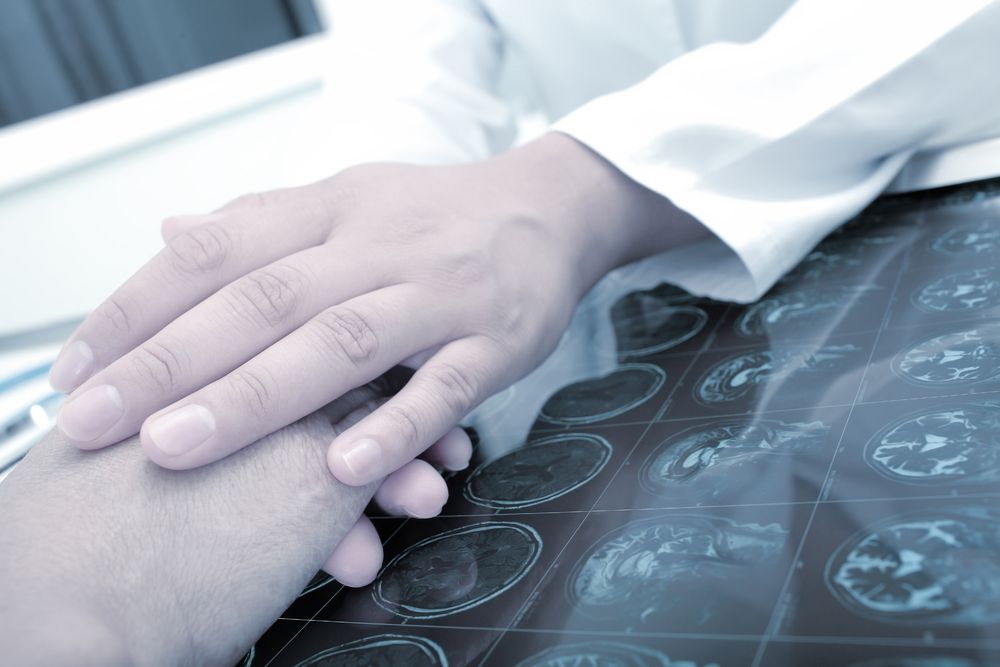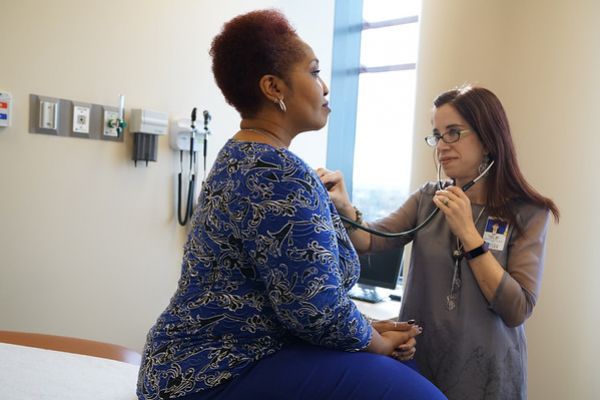What is the role of a sibling? Is it to be a protector? A pace car in the race of life? A built-in babysitter? A friend or an enemy?
All brothers and sisters must suss out these issues throughout their lives together. But when cancer comes into play, it can make answering this question far more urgent. In the weeks following my brother's brain cancer diagnosis, I found myself asking friends, family members, doctors, and all manner of deities—what am I supposed to do now?
My brother David and I have always been close. My mother tells me that in the months leading up to his birth, I, aged two at the time, would often tell strangers that I was having a baby. When he was born, I continued to act accordingly, tucking him into my little red wagon and covering him with my prized bear blanket. In my mind, he was my baby, and my job was to take care of him.
As we both grew, Dave became my favorite playmate. Though we fought over toys and TV like all kids do, we also shared many of the same interests, tastes and beliefs. Which meant that it also became my job to include him in my adventures.
“You were always fearless, and as far back as I can remember, you would put your arm over Dave's shoulder and encourage him to explore: restaurant kitchens, caves, the woods,” my mom recalls. “You still do.” (It's true: I've invited him on trips all over the world with me, and encouraged him to take his own, as I wrote about in my last post, Traveling with Cancer.)
As we entered adolescence, our parents divorced, which meant that both of us had less adult attention to go around. So Dave and I would work through our problems together. He'd listen to my frustrations about work or school, and I'd talk him through struggles with girlfriends. “You've given me a lot of good lady advice that I try hard to adhere to,” my brother told me recently. (Doesn't every older sister dream of hearing these words?)
But when Dave was diagnosed with cancer, I found myself at a loss. This new threat was something I'd never experienced. And no words of wisdom could fix this problem.
Thus, my role as a sister is under revision, and has required new research. Stories I've read reveal a wide range of responses from siblings to cancer, from submitting to painful bone marrow extraction on a sister's behalf to doing—well, nothing, which is an option for some siblings, I suppose, especially if their families weren't tight-knit to begin with. One sad story I read featured an older study by Psychology Today reporting that one-third of adult Americans describe their sibling relationship as “rivalrous or distant,” with “an underlying sense that 'this is the way it's supposed to be.'”
This was never an option for me. In fact, my dad, a psychologist himself, has said he's observed “the disappearance of sibling rivalry, as rivalry” from his radar screen, replaced by a more constant sense of empathy.
“Clearly you've had [David's] back,” says my dad, citing the fact that I moved home shortly after his diagnosis to help care for him in Buffalo. “Clearly you've stepped up to do things, and clearly you've positioned yourself to be reliably accessible to him for future needs.”
My brother agrees, expressing gratitude for the doctor's visits I've attended since then, and the runs to the pharmacy or grocery store I've made when he was too weak to do it himself.
“I cherish it all,” he says, adding, “It's not something I quantify though. I'm happy to have you involved in any way.”
My mom has also come to value my extra help. “I know that I can count on you to care, to help me find solutions and also give me a perspective of an adult child. You have a very important voice,” she told me in a recent email. “You support my own health and wellness.”
It's always nice to hear that my family appreciates what I've done: like many older siblings, I'm hardwired for high achievement and familial approval. But because of this, it's also hard to feel good for long about my sisterly involvement. My brother's needs are infinite, his disease relentless, and thus, it's hard to measure impact. For a protective, perfectionist, problem-solving sibling, feeling helpless in the face of a loved one's cancer is the ultimate psychological torment. On good days, I feel guilty for being free to have fun while he's feeling down, and on bad days, I feel overwhelmed by sadness and fear on my brother's behalf.
According to Cancer.net, this is a common theme among siblings in my situation. “Often, the healthy sibling experiences guilt for not being the sick child ... or for having emotions such as anger and jealousy,” the site notes. “Siblings may feel sad for their ill brother or sister and for their parents, [and] grieve the loss of normal family life and a carefree childhood.”
I suppose this is what hurts the most: if our lives had been disrupted in any other way, I'd want to talk to Dave about it, sharing the good, the bad and the ugly feelings. But because Dave's life has been disrupted so profoundly, I try not to get into the ugly it's brought into mine, though it's still there: the grief over what I've lost, the worries about what I still stand to lose. Sharing these thoughts with him now feels selfish.
As it turns out, editing or acting out one's emotions in unusual ways is a common sibling response, according to several studies featured on the support group website supersibs.org: older siblings are far more likely to develop “internalizing” psychological disorders, such as depression and anxiety, pushing bad feelings down deep inside, while younger siblings are more likely to act aggressively, perhaps in a bid to win back the attention they've lost.
I know I still need love and support. So, since Dave's diagnosis, I've found it best to turn to other close friends for objective advice and care. Their concern for me as an individual, rather than an extension of my family, serves to remind me that my worth, as Dave says, cannot be quantified based on the impact I'm able to make (or unable to make) on his unique destiny. I will always be thankful to the men and women who bombarded my house with cards, poems and invitations after I moved home to care for him, letting me know that I was far from forgotten. And the time I spend with them allows me to return to my family refreshed.
This is not to say that I'm afraid to be honest with my brother. We even bicker, as all siblings do: Dave himself will admit, “There are times where steroids have had me wanting to throw glass and break stuff.” And if he turns his crankiness on me, I'm just as likely to give him an old-fashioned upbraiding as I am to turn the other cheek. I'm his sister, after all, not a damn saint, and I still see it as my job to teach my twenty-five-year-old bro how to treat a lady, even if that lady is me.
However, it is also Dave who sets the best example for me in our situation: joking with his doctors, spending time relaxing with friends, and showing he is unafraid to face his future, with or without my help.
“Cancer really requires persistent courage and hope,” Dave remarked recently. “It's about being positive always.”
So, when it came to answering my all-important question for this blog post—what should siblings do in the face of cancer?–my courageous, wise baby brother was still the first person I asked for advice.
His answer, I think, was better than anything I might have given him.
“I think siblings just have to love one another.”
Resources
Recognizing the risk facing siblings of those suffering from cancer, this group aims to support children and teens with customized care packages to help kids know they're not forgotten.
Cancer.net: Siblings and Cancer
Though geared towards parents of young siblings, this comprehensive article contains good advice for relatives of all ages.
A young woman with cancer blogs about her life in NYC, her treatment and her brother, Adam, for the New York Times' Well blog.


